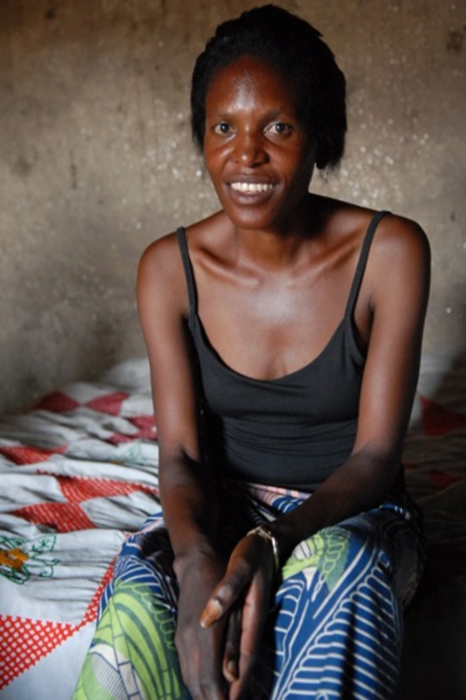
January 2017—Odile Mugabekazi was pregnant with her second child when she was diagnosed with HIV. Already a single mother supporting her daughter with the meager income she earned as a sex worker, Mugabekazi thought her life was ending.
But Mugabekazi’s life took a turn when she was identified by a USAID program that reached out to over 3,700 female sex workers in Rwanda. The program provided the training Mugabekazi needed to become a community health and financial leader. She learned how to teach her peers about family and financial planning, reproductive health, nutrition and more.
With her newfound knowledge, Mugabekazi formed a group of 10 female sex workers and taught them about the importance of HIV prevention, sexually transmitted infection screening, and family planning. She also helped the HIV-positive members of the group to enroll in treatment.
And thanks to loans from a local financial cooperative organized by the USAID program, Mugabekazi also learned hairdressing, established a kitchen garden, and bought livestock.
“I am now able to pay school fees for my children without going to the streets,” says Mugabekazi, who has stopped sex work and now lives in her own house.
The benefits of Mugabekazi’s involvement in this program have only kept accruing. In July 2016, Mugabekazi organized her own financial cooperative with 300 members, many former sex workers. She named the cooperative Duhiduke tugamijererambere ego hazaza, which means “We can only change ourselves by looking forward.”
For now, Mugabekazi has established a market where the cooperative members can sell fruit, but they’re working together toward a larger goal. The cooperative plans to own a supermarket by 2020.
Mugabekazi recognizes the potential of the cooperative to provide financial and family assistance. “United we can gain more and improve our lives and community,” she says.
From 2013 to 2016, USAID’s Roads to a Healthy Future (ROADS III) program provided a multitude of health and financial services to vulnerable communities near Rwanda’s transport corridors to surrounding countries. HIV prevalence in the communities was often twice as high as national estimates, and essential health services were weak or non-existent. In addition to providing support for people living with HIV, the program screened over 56,000 children under 5 years old and 25,000 pregnant or lactating women for malnutrition.
LINKS
Follow @USAIDRwanda, on Facebook, on Flickr







Comment
Make a general inquiry or suggest an improvement.